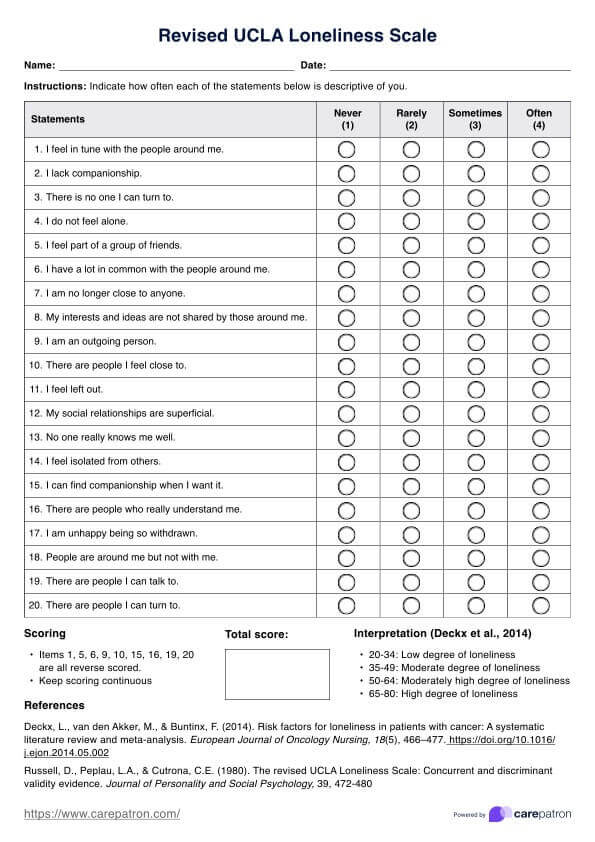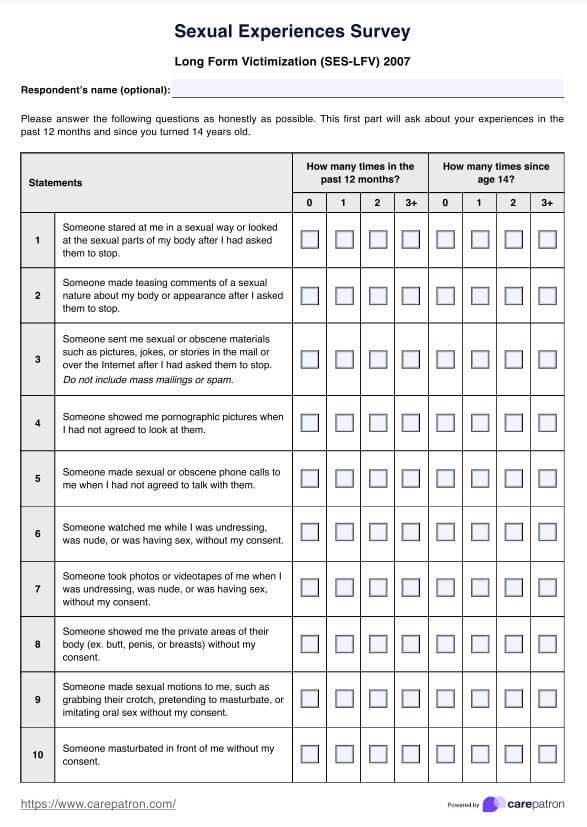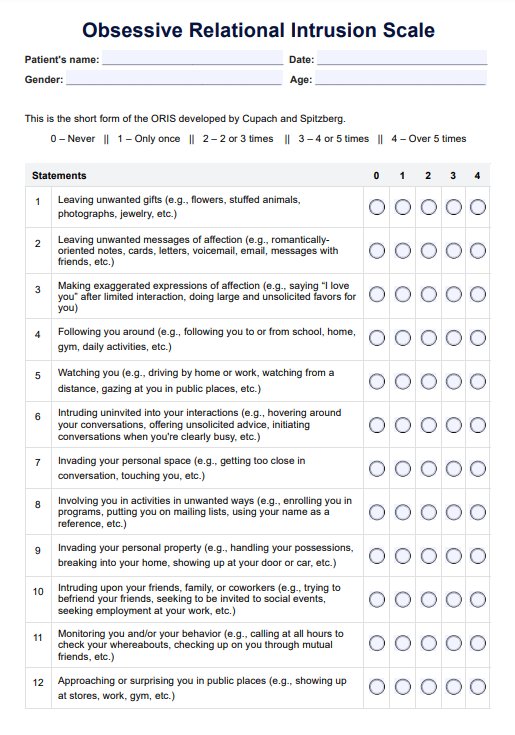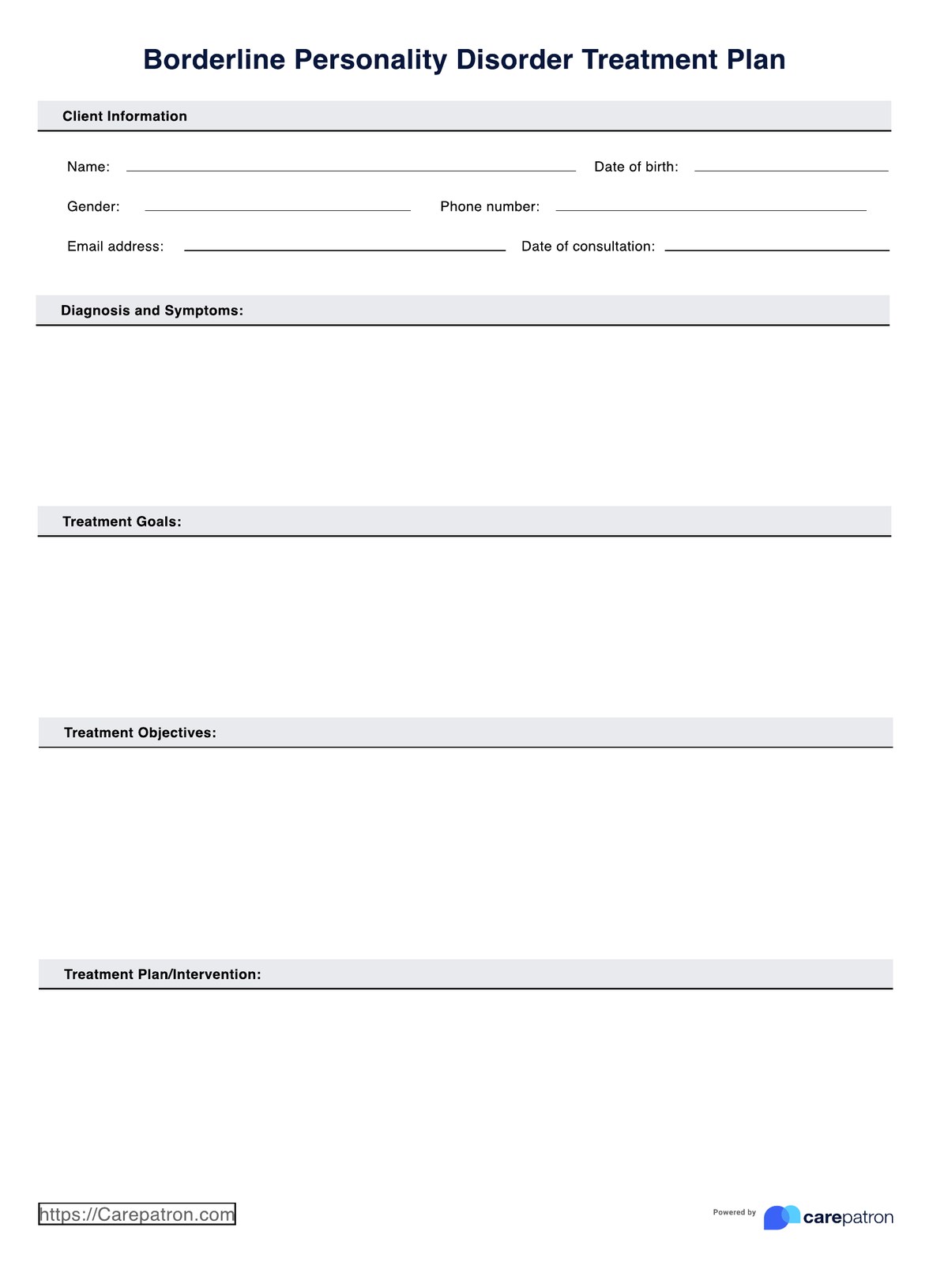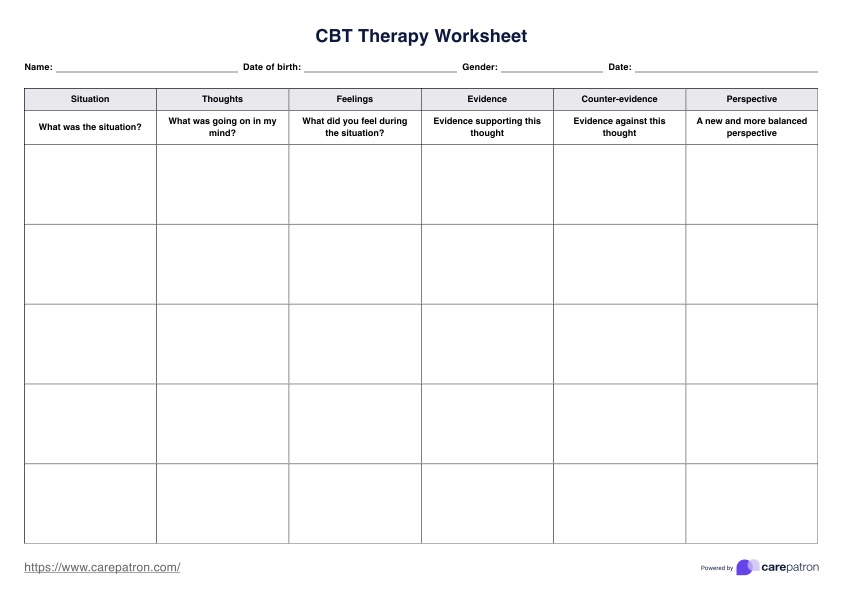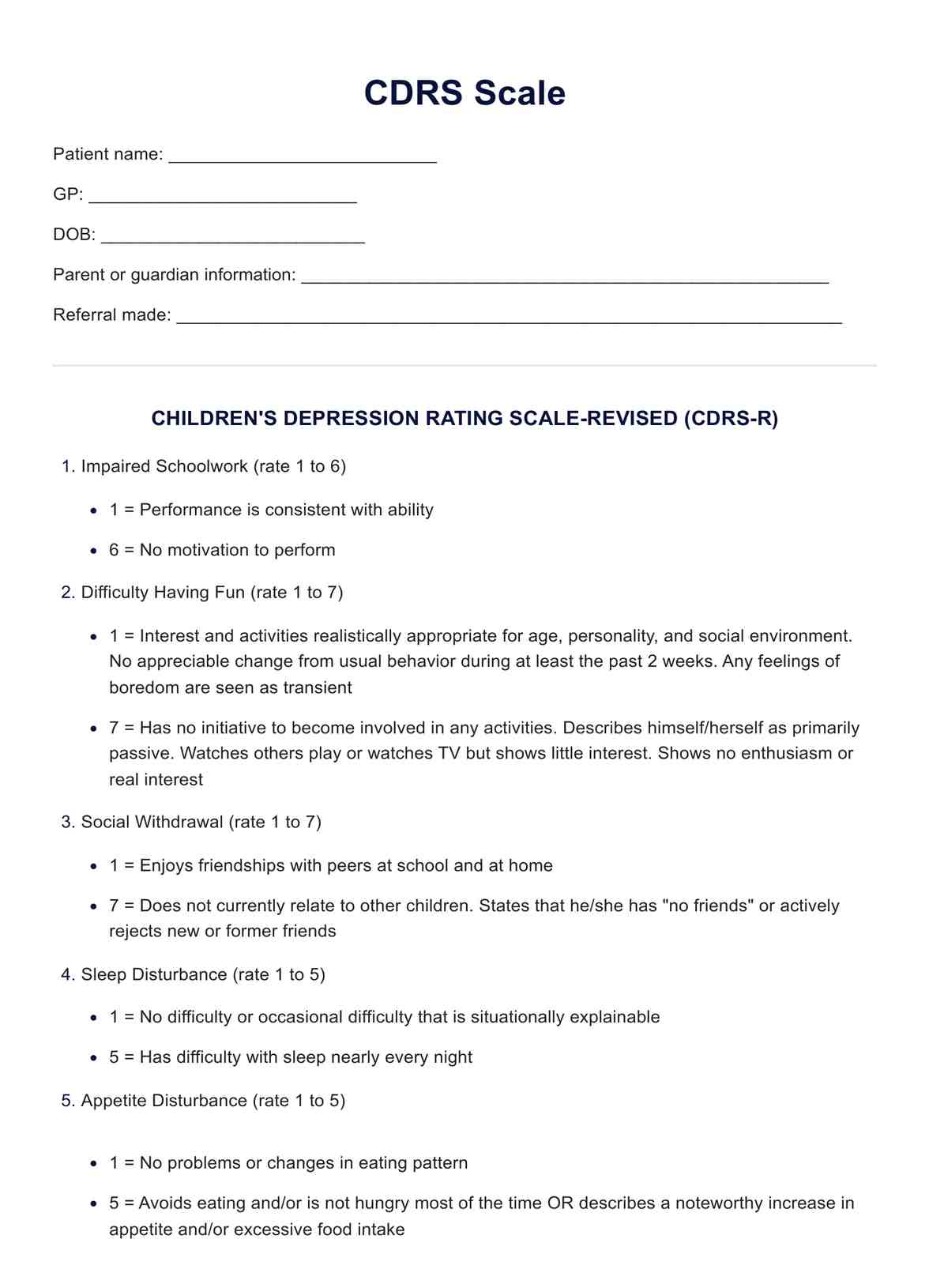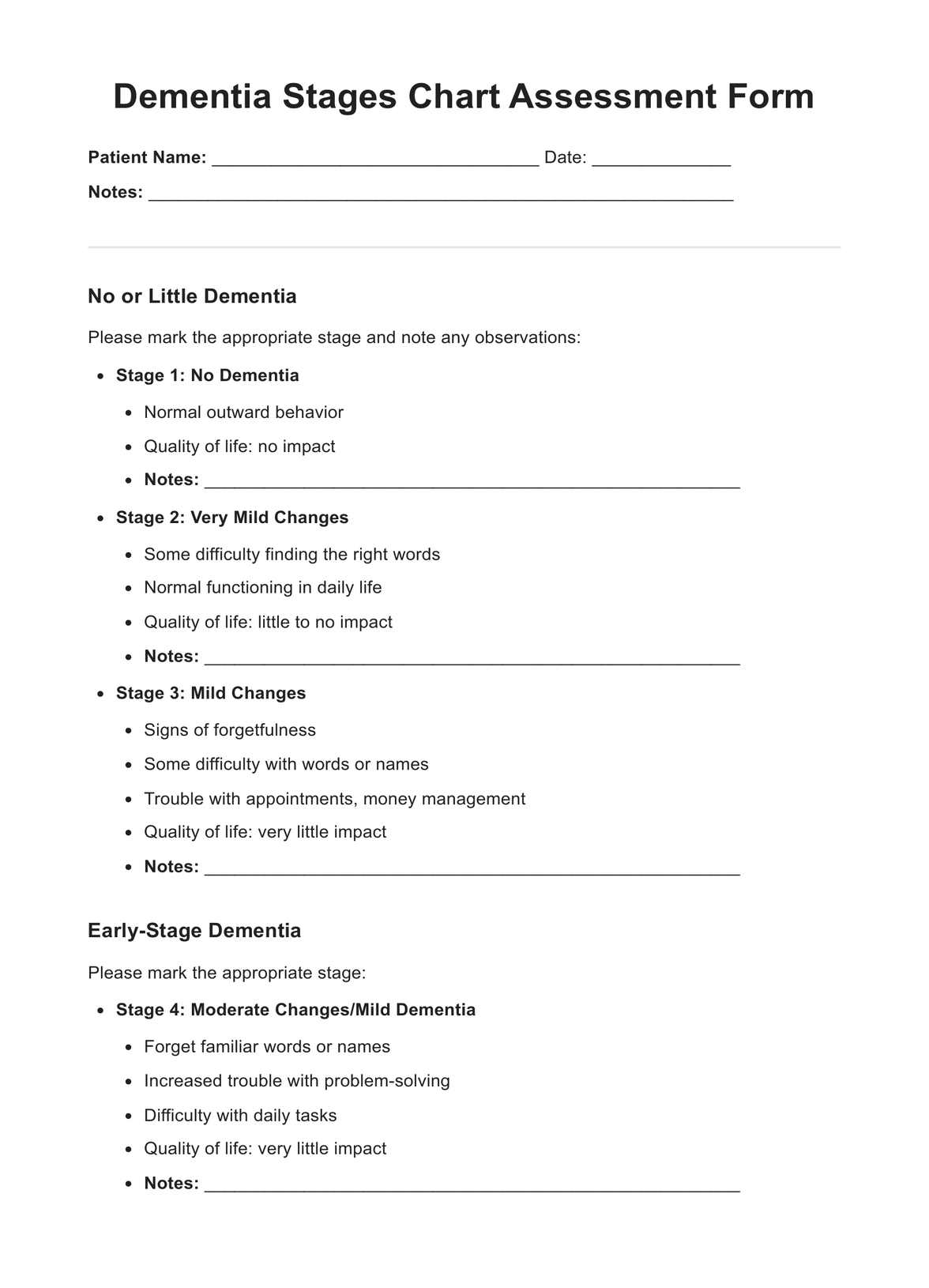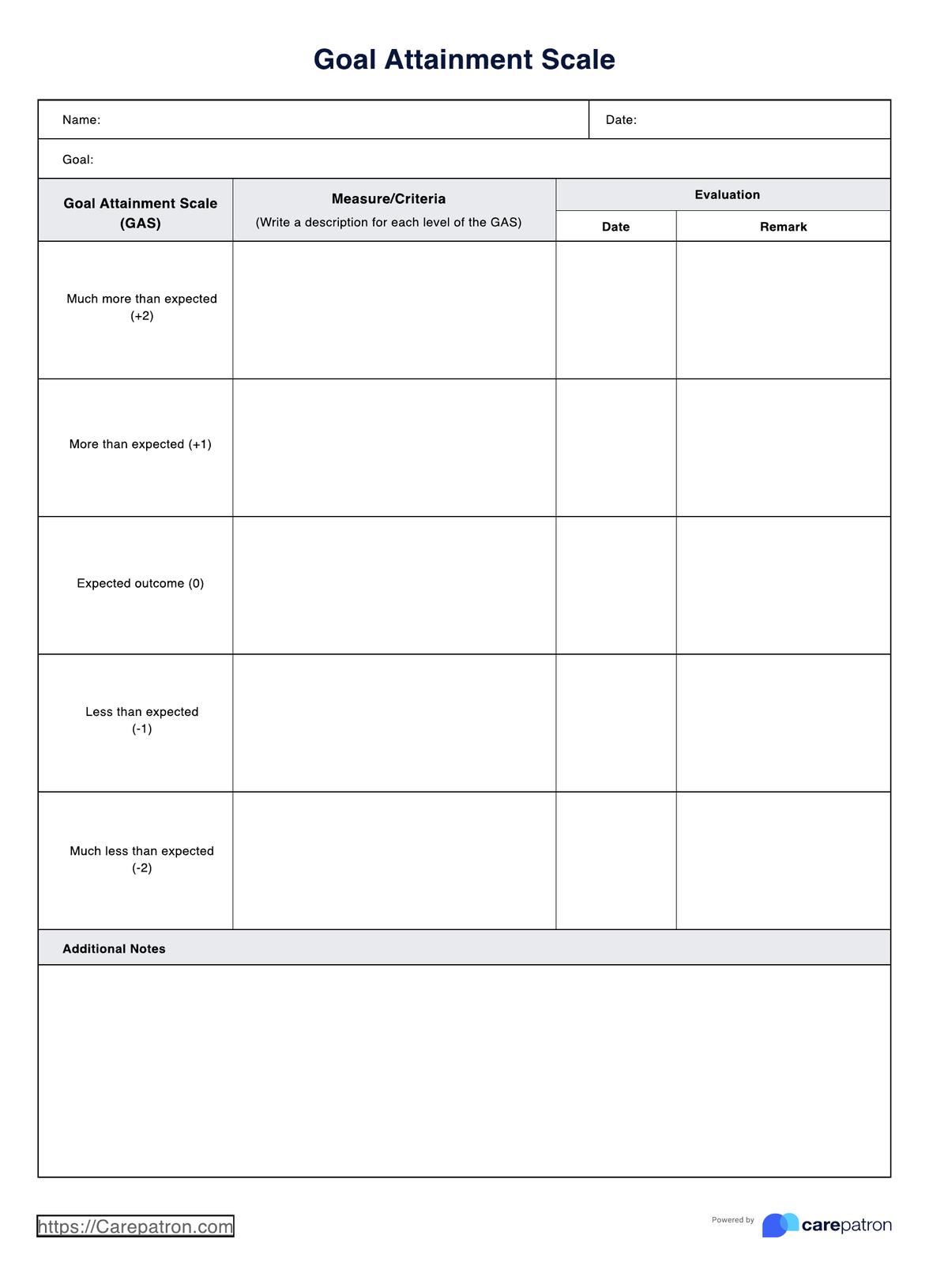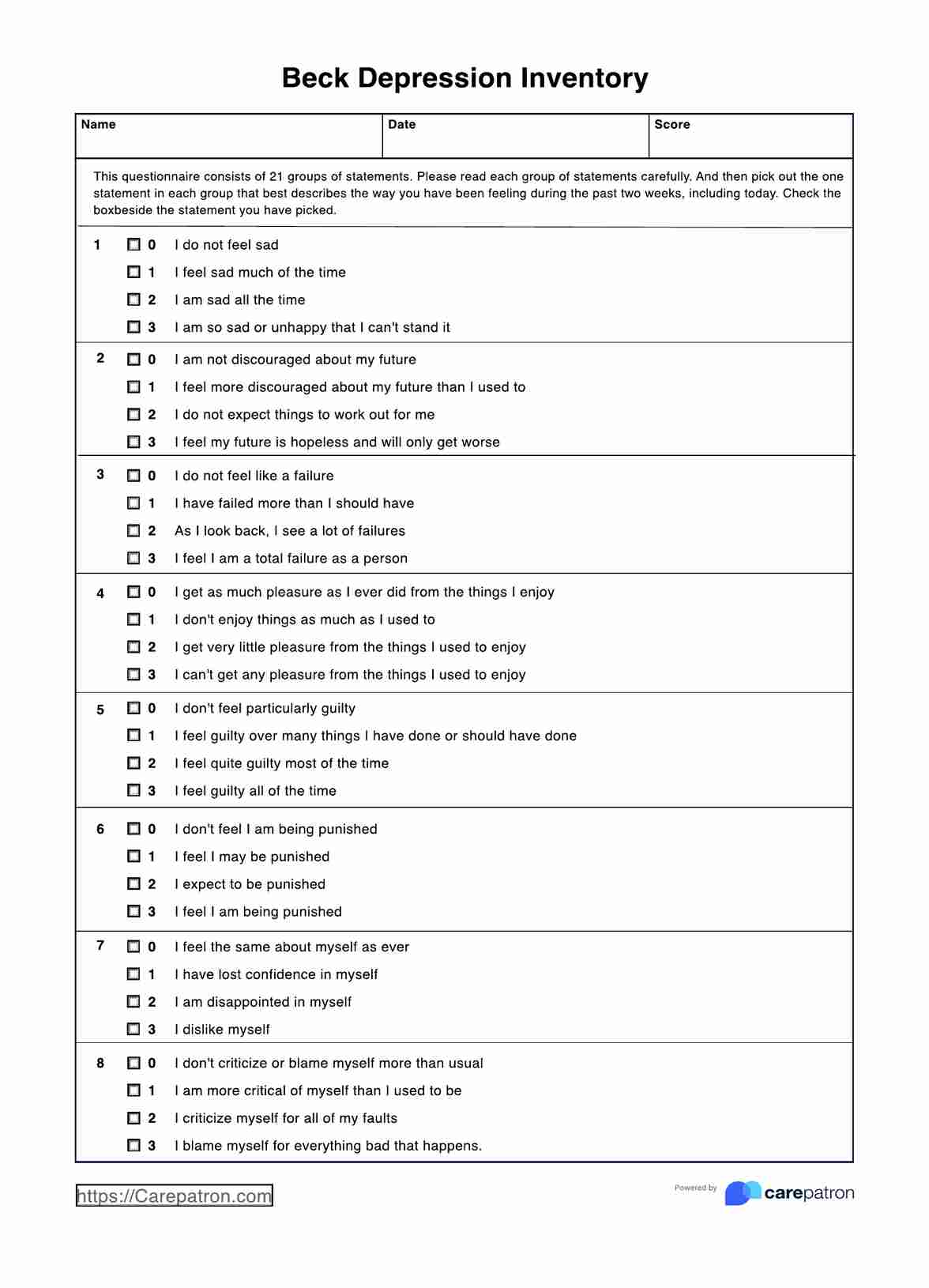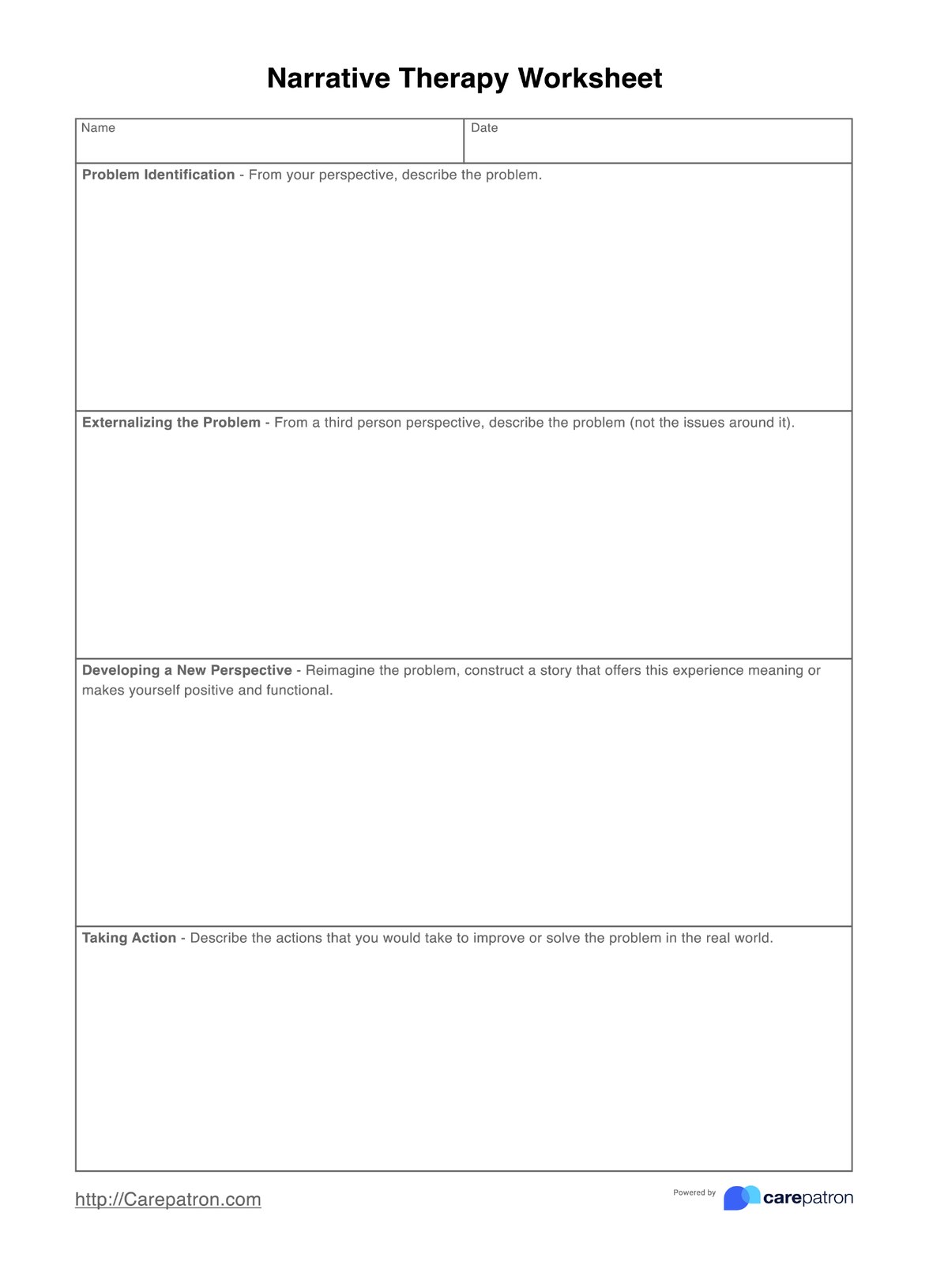Psychological Flexibility Worksheet
Download our Psychological Flexibility Worksheet to help clients enhance adaptability, improve resilience in relationships, and find purpose.


What is a Psychological Flexibility Worksheet?
The Psychological Flexibility Worksheet is a structured, evidence-based tool grounded in acceptance and commitment therapy (ACT) principles. It is designed to help individuals cultivate psychological flexibility by building core skills such as present-moment awareness, cognitive defusion, acceptance, self-reflection, values clarification, and committed action. This approach emphasizes the importance of psychological flexibility in fostering well-being and adaptive responses to challenges.
Each exercise in this worksheet includes reflection prompts to deepen learning, offering space for practical insights and action planning. By working through the sections, professionals can identify unhelpful patterns especially when these strategies compromise personal functioning and well-being. These can also help reduce emotional reactivity, and re-align their behavior with their personal and professional values. The tool emphasizes dynamic approaches to psychological flexibility, enhancing focus, emotional agility, and resilience in high-pressure environments while fostering overall well-being and meaningful progress.
The worksheet can be used independently for self-reflection or as a guided resource in coaching, therapy, or professional development settings. Its structured design ensures practical, evidence-based strategies in understanding psychological health and supporting professionals in navigating challenges effectively.
Psychological Flexibility Worksheet Template
Psychological Flexibility Worksheet Example
How to use our Psychological Flexibility Worksheet
Follow these steps to integrate the Psychological Flexibility Worksheet into your practice effectively:
Step 1: Access the worksheet
The Psychological Flexibility Worksheet is available as a customizable template within this guide. Click “Use template” to open it in the Carepatron app, where you can tailor it to suit your client’s unique needs. Alternatively, a fillable PDF version is also available for download.
Step 2: Introduce the worksheet to the client
At the beginning of the session, explain the purpose and structure of the worksheet. Highlight that it is designed to help clients build psychological flexibility by cultivating present-moment awareness, reducing the power of unhelpful thoughts, practicing emotional acceptance, clarifying values, and taking committed action toward meaningful goals.
Step 3: Guide clients through the sections
Work collaboratively with the client to complete each section of the worksheet. Use the exercises to help them practice grounding techniques, “unhook” from difficult thoughts, and make space for challenging emotions. Support them in identifying their values and creating realistic, actionable steps aligned with what matters most.
Step 4: Reflect and reinforce insights
Once the worksheet is completed, revisit key themes and reflections from the session. Encourage the client to explore how these insights can help them respond more effectively to challenges in their daily life. Reinforce the importance of ongoing practice to strengthen psychological flexibility over time.
Step 5: Store completed worksheets securely
Ensure the completed worksheets are stored securely to maintain client confidentiality. For digital records, consider using Carepatron’s secure patient record system with encrypted storage and controlled access. For physical copies, store them in locked, restricted-access areas.
By using the Psychological Flexibility Worksheet thoughtfully, you can help clients develop essential skills to adapt, remain engaged, and take purposeful action—even in the presence of life’s challenges.
Understanding psychological flexibility
Psychological flexibility refers to the ability to adapt to various situational demands while staying aligned with personal values and long-term goals. It involves responding effectively to challenges, rather than reacting automatically, even in the presence of difficult thoughts or emotions. This concept is central to (ACT), which emphasizes the importance of balancing mindfulness, acceptance, and committed action.
In ACT, psychological flexibility spans six core processes: present-moment awareness, cognitive defusion, acceptance, self-as-context, values clarification, and committed action. Together, these processes help individuals move away from psychological inflexibility, which is characterized by rigid responses, avoidance of discomfort, and over-identification with negative thoughts.
Studies in clinical psychology and social and personality psychology highlights how psychological flexibility plays a critical role in managing conflicting forces and competing desires (Prevedini et al., 2011). For example, it enables individuals to navigate stress in everyday life while maintaining focus on their personal values. This adaptability is particularly important in important life domains like work, relationships, and health, where it supports more effective decision-making and resilience.
Through repeated engagement with the principles of ACT, individuals can cultivate psychological flexibility, enabling them to better manage situational demands, maintain balance, and build a life aligned with their values and goals.
Benefits of using our Psychological Flexibility Worksheet
The Psychological Flexibility Worksheet offers several key benefits for professionals, making it a practical and effective tool in therapeutic, coaching, and workplace development settings.
Saves time and streamlines sessions
This worksheet provides a structured, step-by-step approach to building psychological flexibility. By targeting core areas such as mindfulness, cognitive defusion, emotional acceptance, and values-driven action, professionals can efficiently guide clients through meaningful exercises without spending time developing ad hoc interventions.
Enhances client engagement
The interactive format of the worksheet keeps clients actively involved in their own growth process. Each exercise is designed to encourage reflection, skill development, and actionable insights, fostering a sense of ownership and participation in their progress.
Promotes practical application
The worksheet bridges the gap between awareness and action. Exercises like “grounding in the here-and-now” and “building small steps toward values-based living” equip clients with practical tools they can apply immediately in their personal and professional lives.
Supports consistency and focus
For professionals managing multiple clients or team members, this worksheet ensures a consistent approach to cultivating psychological flexibility. It provides a reliable framework that can be tailored to individual needs, maintaining focus on meaningful outcomes.
Incorporating the Psychological Flexibility Worksheet into professional practice not only simplifies the delivery of psychological skills but also fosters deeper engagement, more effective outcomes, and meaningful, values-driven change.
Reference
Prevedini, A. B., Presti, G., Rabitti, E., Miselli, G., & Moderato, P. (2011). Acceptance and commitment therapy (ACT): The foundation of the therapeutic model and an overview of its contribution to the treatment of patients with chronic physical diseases. Giornale Italiano di Medicina del Lavoro ed Ergonomia, 33(1 Suppl A), A53–A63. https://pubmed.ncbi.nlm.nih.gov/21488484/
Commonly asked questions
The Psychological Flexibility Worksheet is grounded in contextual behavioral science, providing evidence-based tools to enhance psychological flexibility. By targeting mindfulness, acceptance, and committed action, it helps professionals address mental health challenges and guide clients toward improved psychological well-being. Drawing on principles from commitment therapy, the worksheet helps clients reconfigure mental resources to navigate situational demands more effectively.
Psychological flexibility is a fundamental aspect of well-being because it enables individuals to adapt to fluctuating situational demands while acting in line with their personal values. By addressing experiential avoidance and encouraging responses grounded in the present moment, individuals can better manage negative thoughts and reduce emotional reactivity. This process fosters greater well-being and enhances one’s ability to maintain balance in daily life.
The worksheet supports personal or social functioning by helping individuals develop coping strategies to balance competing desires and navigate conflicting forces. Through exercises targeting emotion regulation and mindfulness, clients become more psychologically flexible and learn to respond effectively to challenges. This is supported by tools like the Acceptance and Action Questionnaire, which measure improvements in flexibility and psychological health.
In clinical and health psychology, developing psychological flexibility is key to addressing basic psychological needs and promoting overall well-being. The worksheet aligns with basic research findings and promising interventions that emphasize dynamic approaches to managing stress and improving life domains such as work, relationships, and health. By helping clients shift mindsets and build adaptive behavioral repertoires, it supports lasting progress and fosters positive emotions even in challenging environmental contexts.


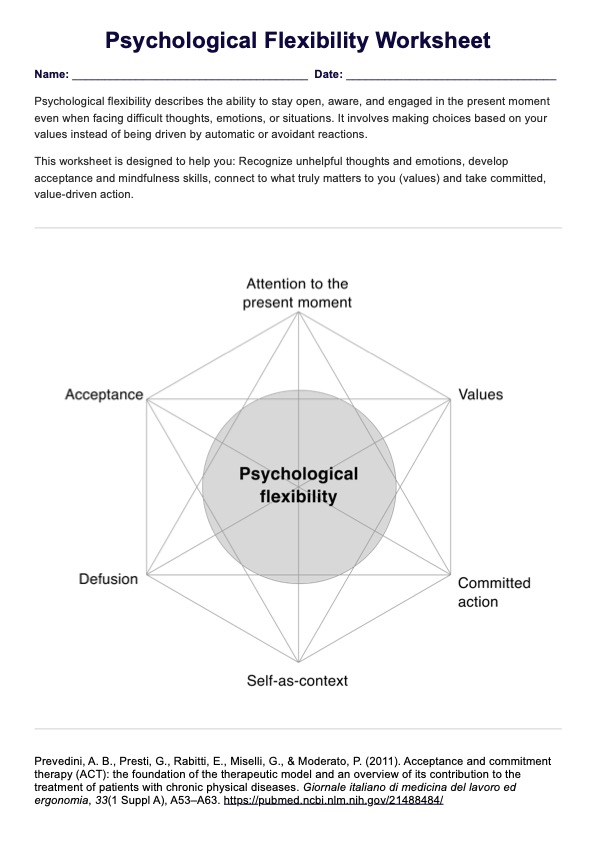
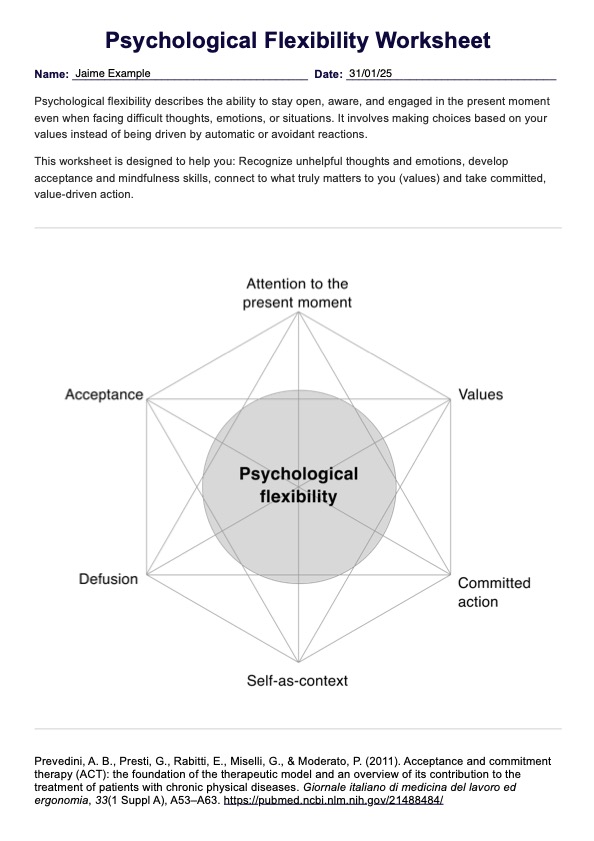

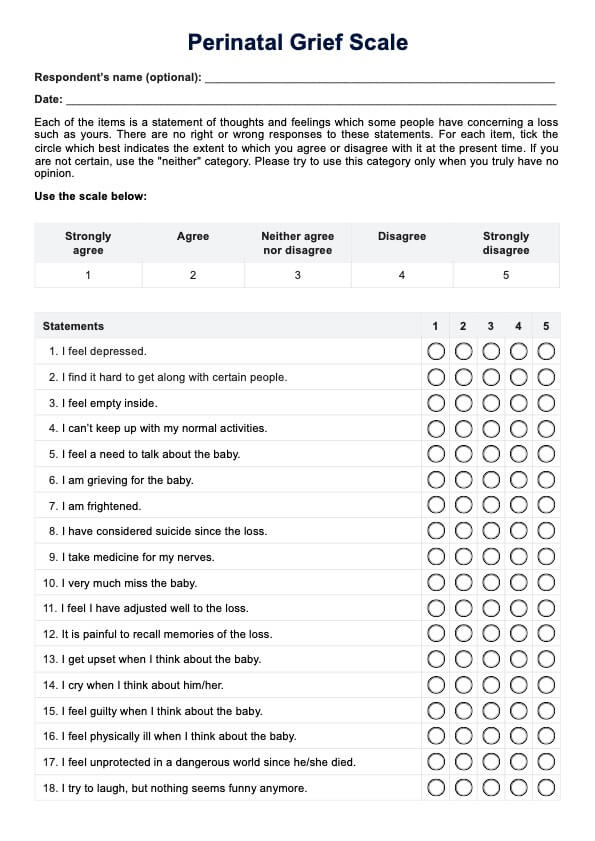
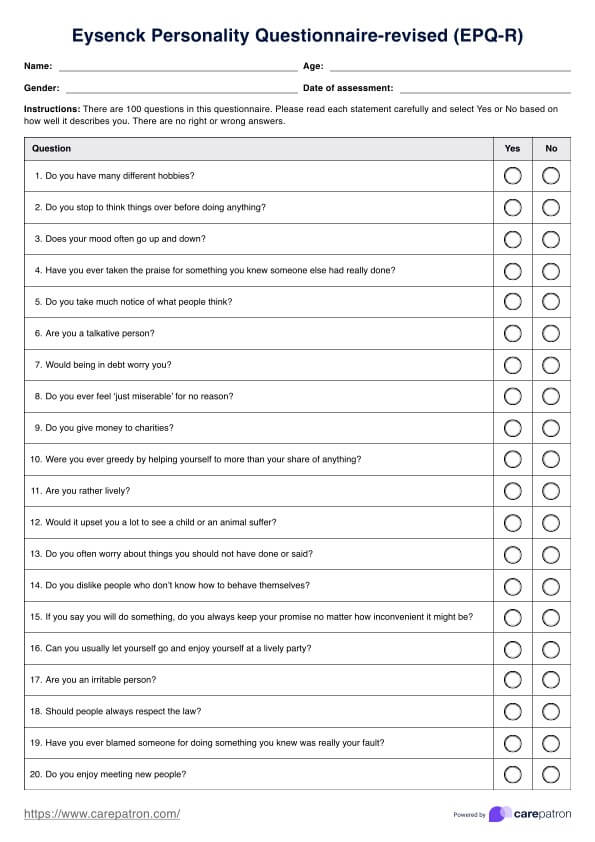
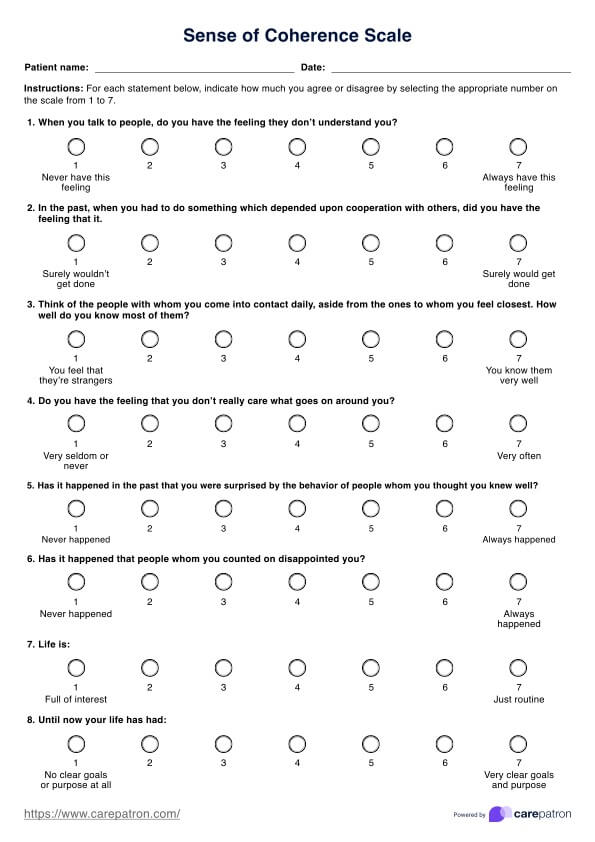












-template.jpg)
















































































